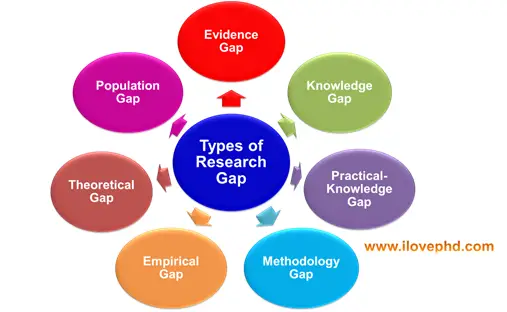If you are a budding researcher, the foremost challenge that stands before you is the identification of a remarkable and novel research topic in your field of study. Some scholars find a note-worthy research problem while many struggles to identify an interesting research problem. Identification of a novel research problem is the first and most vital step to start a research work. Therefore, to help the scholars’ iLovePhD has published an article on “How to identify research gap”, wherein the tips for identification of a gap in research are also explained. In this article, the different types of research gaps in the literature review are presented.
Scholars need to understand the difference between research gap and research problem.
“A research gap is a key problem or a question that has not been answered by any of the existing studies within your area of research.”
ilovephd.com
“A research problem is a constructed statement which is developed from a research gap and it should clearly describe the novelty of your study.”
ilovephd.com
Different Types of Research Gaps in the Literature Review
According to Robinson, Saldanhea & McKoy (2011), Muller-Bloch, & Kranz (2015), and Miles (2017), the research gap has been classified into seven categories.

Evidence gap: Little or no evidence to address the research problem.
Knowledge gap: Knowledge may not exist in the actual field. It might be the case that the result of a study differs from what was expected.
Practical-Knowledge gap: When professional behavior or practices deviate from research findings or are not covered by the research.
Methodology gap: A distinction in research methods is needed to have new insights or to avoid ambiguous findings.
Empirical gap: Research findings need to be evaluated or empirically verified.
Theoretical gap: Theory should be applied to certain research issues to generate new insights; lack of theoretical knowledge may lead to a gap in research.
Population gap: Type of research gap that deals with a population which is not adequately represented or under-researched in the prior research (Eg., Gender, age, race).
We hope this article makes you understand the different types of research gaps in the literature review.


